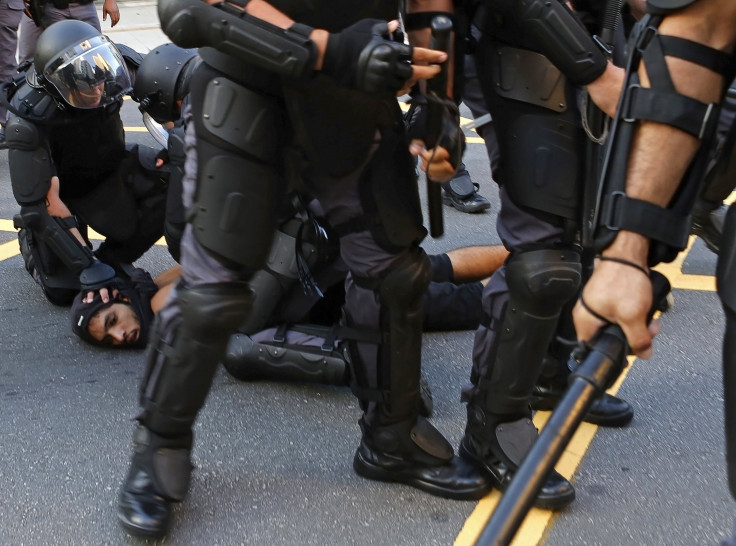Brazilian Surfer Ricardo Dos Santos Death: Brazil Police Brutality, Corruption Debated After Fatal Shooting

Brazilian surfer Ricardo dos Santos' death Tuesday a day after an apparent altercation with an off-duty military police officer has renewed debate over the nation’s law enforcement officials and excessive police brutality. Brazil’s police have been accused repeatedly in recent months of corruption, abuse of lethal force and other illegal activities.
Dos Santos, 24, was shot three times in the chest on Monday after an argument with an officer at a beach near the city of Florianopolis, the BBC reports. The argument’s cause is unclear -- one witness said dos Santos was stopped for using drugs and playing music outside his home, while others said dos Santos argued with the officer over a parked car.
Military police officer Luis Paulo Mota Brentano was arrested in connection with the shooting, the Guardian reports. He purportedly told investigators that he shot dos Santos in self-defense.
“Our Ricardo is gone,” dos Santos’ family said in a statement. “He lived so much in his 24 years. It is a very hard time for us right now. We believe that there are better barrels where Ricardo is going and that he will be there getting barrels with [deceased American surfer] Andy Irons. We want to thank everyone for their support. Thank you all for the opportunities in his life and career. Ricardo was very grateful for everything.”
The dos Santos shooting is the latest example of controversial behavior among Brazilian police. A study conducted by the Brazilian Forum on Public Safety found in 2014 that Brazilian police killed more than 11,000 people from 2009 to 2013, including 2,212 in 2013 alone. “The empirical evidence shows that Brazilian police make abusive use of lethal force to respond to crime and violence,” the study said.
Police corruption is of particular concern in the city of Rio de Janeiro. Brazil’s Ministry of Justice conducted a National Victimization Survey in 2013 that found more than 7 percent of the city’s inhabitants had paid bribes to police officers, according to InSightCrime.com. Local police arrested 22 officers in September 2014, including the third-highest ranking member of Rio’s military police, for running an extortion racket.
Brazilian police were regularly accused of excessive use of force ahead of the 2014 FIFA World Cup held last summer in cities throughout the country. Officers used tear gas, rubber bullets and stun grenades to subdue demonstrators who protested the government’s decision to host the international soccer tournament.
© Copyright IBTimes 2024. All rights reserved.












